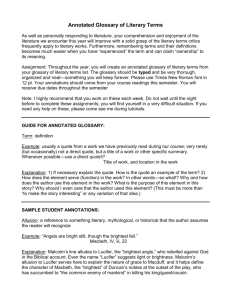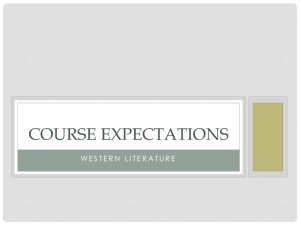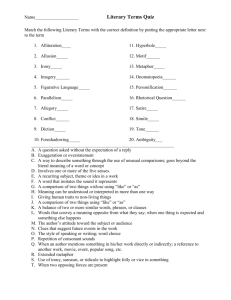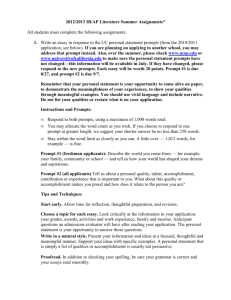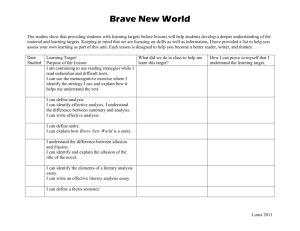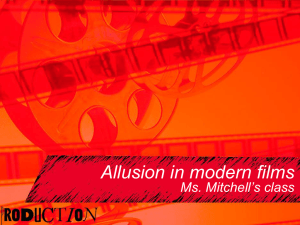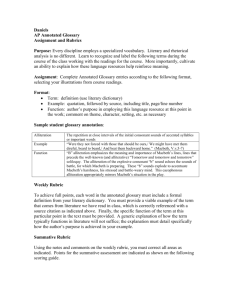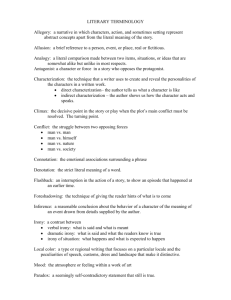Annotated Glossary of Literary Terms
advertisement
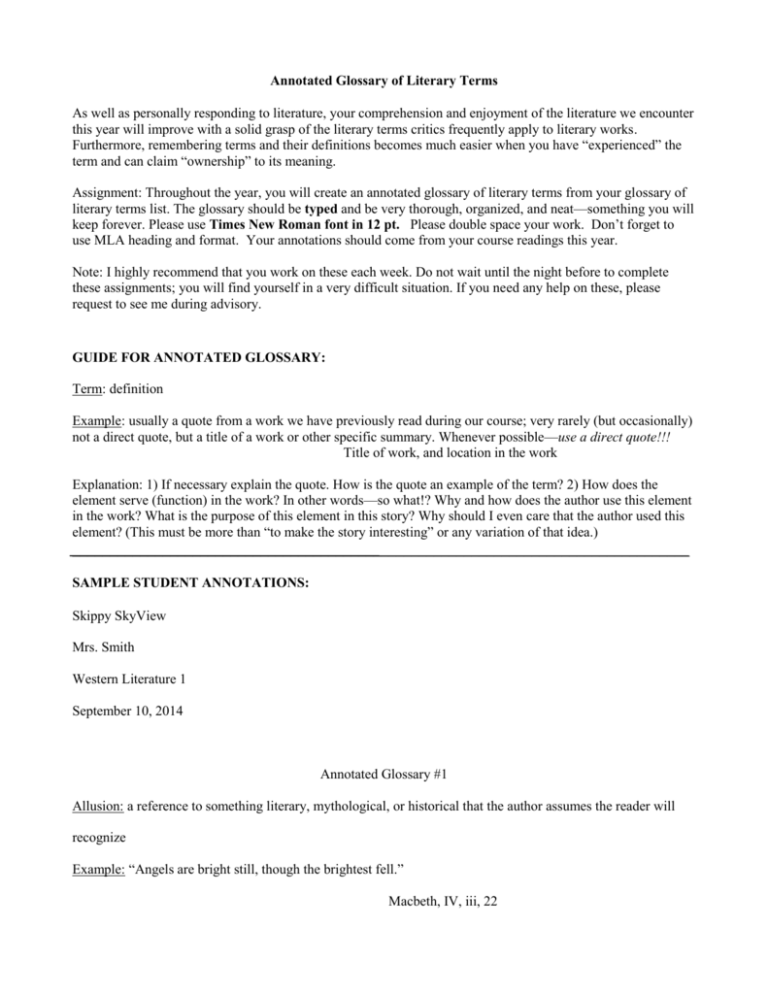
Annotated Glossary of Literary Terms As well as personally responding to literature, your comprehension and enjoyment of the literature we encounter this year will improve with a solid grasp of the literary terms critics frequently apply to literary works. Furthermore, remembering terms and their definitions becomes much easier when you have “experienced” the term and can claim “ownership” to its meaning. Assignment: Throughout the year, you will create an annotated glossary of literary terms from your glossary of literary terms list. The glossary should be typed and be very thorough, organized, and neat—something you will keep forever. Please use Times New Roman font in 12 pt. Please double space your work. Don’t forget to use MLA heading and format. Your annotations should come from your course readings this year. Note: I highly recommend that you work on these each week. Do not wait until the night before to complete these assignments; you will find yourself in a very difficult situation. If you need any help on these, please request to see me during advisory. GUIDE FOR ANNOTATED GLOSSARY: Term: definition Example: usually a quote from a work we have previously read during our course; very rarely (but occasionally) not a direct quote, but a title of a work or other specific summary. Whenever possible—use a direct quote!!! Title of work, and location in the work Explanation: 1) If necessary explain the quote. How is the quote an example of the term? 2) How does the element serve (function) in the work? In other words—so what!? Why and how does the author use this element in the work? What is the purpose of this element in this story? Why should I even care that the author used this element? (This must be more than “to make the story interesting” or any variation of that idea.) __________________________________________________________________________________ SAMPLE STUDENT ANNOTATIONS: Skippy SkyView Mrs. Smith Western Literature 1 September 10, 2014 Annotated Glossary #1 Allusion: a reference to something literary, mythological, or historical that the author assumes the reader will recognize Example: “Angels are bright still, though the brightest fell.” Macbeth, IV, iii, 22 Explanation: Malcolm’s line alludes to Lucifer, the “brightest angle,” who rebelled against God in the Biblical account. Even the name “Lucifer” suggests light or brightness. Malcolm’s allusion to Lucifer serves here to explain the nature of grace to Macduff, and it helps define the character of Macbeth, the “brightest” of Duncan’s nobles at the outset of the play, who has succumbed to “the common enemy of mankind” in killing his king/guest/cousin. First Set Due: October 14th 1. static character 2. dynamic character 3. indirect characterization 4. direct characterization 5. diction 6. archetype 7. imagery 8. point of view 9. theme 10. conflict Third Set Due: February 2nd 1. hubris 2. hamartia 3. catharsis 4. alliteration 5. allusion 6. frame story 7. satire 8. dramatic irony 9. allusion 10. symbol Fourth Set Due: March 9th Second Set Due December 16th 1. details 2. foreshadowing 3. mood 4. tone 5. metaphor 6. simile 7. personification 8. motif 1. dramatic monologue 2. soliloquy 3. pun 4. antithesis 5. oxymoron 6. hyperbole 7. aside 8. comic relief 9. verbal irony 10. situational irony
